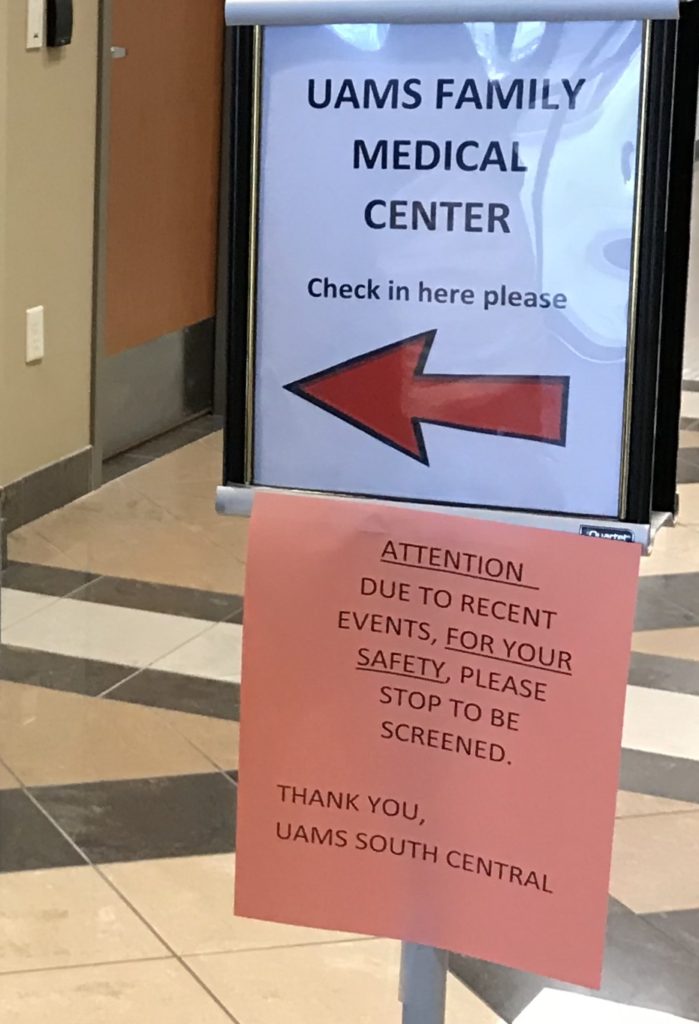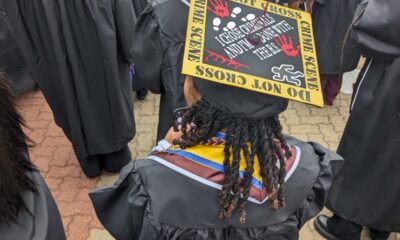Featured
What Happens When Workers on the Frontline Are Exposed to COVID-19

Margot Davis was standing at the front desk of the senior living facility she manages when one of the residents passed out. He tested positive for COVID-19. Now, she is self-quarantining for the next 14 days.
“I do not have any symptoms as of yet,” Davis says. “The Health Department is monitoring by twice a day check ins, requesting temperatures and asking how is my breathing and am I coughing.”

Each day more and more Americans face the possibility of COVID-19 infection after contact with someone carrying the virus who is asymptomatic or symptomatic but hasn’t been tested. And, millions are taking precautions unprecedented in their lifetimes to avoid infection. It is why the Centers for Disease Control and other health officials are urging social distancing and diligent handwashing while federal, state and local authorities have closed nonessential businesses, schools, and placed 75 million Americans on lockdown.
Financial Impact on Black America
Questions about the impact of COVID-19 specifically on African Americans are being raised because a large percentage works in hourly positions and will not receive a paycheck unless they are at work. The $2.2 trillion coronavirus stimulus bill passed by Congress will provide a one-time monetary boost for many, but with a staggering world economy, financial concerns are not the exclusive worry of Black America. Yet, years of disparities will combine with the pandemic uncertainty and increase hardships. In a recent article written by Andre Perry at the Brookings Institute, Perry pointed to information from the government.
“According to the Federal Reserve’s most recent numbers in 2016, white families had the highest medial family wealth at $171,000. Black and Latino or Hispanic families had $17,600 and $20,700 respectively – making these household far more susceptible to pandemics of this scale,” he wrote.
Davis is being paid while she self-quarantines. She is also working from home and “calling and checking on my residents to make sure they have everything they need on a daily basis.”
At home she is confined to her bedroom and restroom away from other family members.
“My meals are prepared on paper goods and tossed in the trash which I double bagged before anyone touches it and takes it out,” she explained.
Before the outbreak, Davis planned to celebrate her birthday with a concert in Chicago. When the Gregory Porter and Ledisi concert was canceled, she redirected the party to St. Louis where she lives. She discovered she would need to self-quarantine a few days before her special day.
She said, “In the midst of working, I am praying and asking that the Lord’s will be done…not mine.”

-

 Featured10 months ago
Featured10 months agoCalifornia Is the First State to Create A Public Alert for Missing Black Youth
-

 Featured10 months ago
Featured10 months agoAfrican American Leaders Stay the Course Amid Calls for President Biden To Bow Out of Race
-

 Featured10 months ago
Featured10 months agoThe Debate Fallout Lands on Both Candidates
-

 Featured10 months ago
Featured10 months agoPresident Joe Biden Decides to Withdraw from the Presidential Race
-

 Featured10 months ago
Featured10 months agoPresident Joe Biden Describes Shooting of Donald Trump As ‘Sick’
-

 Featured9 months ago
Featured9 months agoIn One of His Final Speeches as President, Biden Says It’s Time for ‘Fresh Voices’









